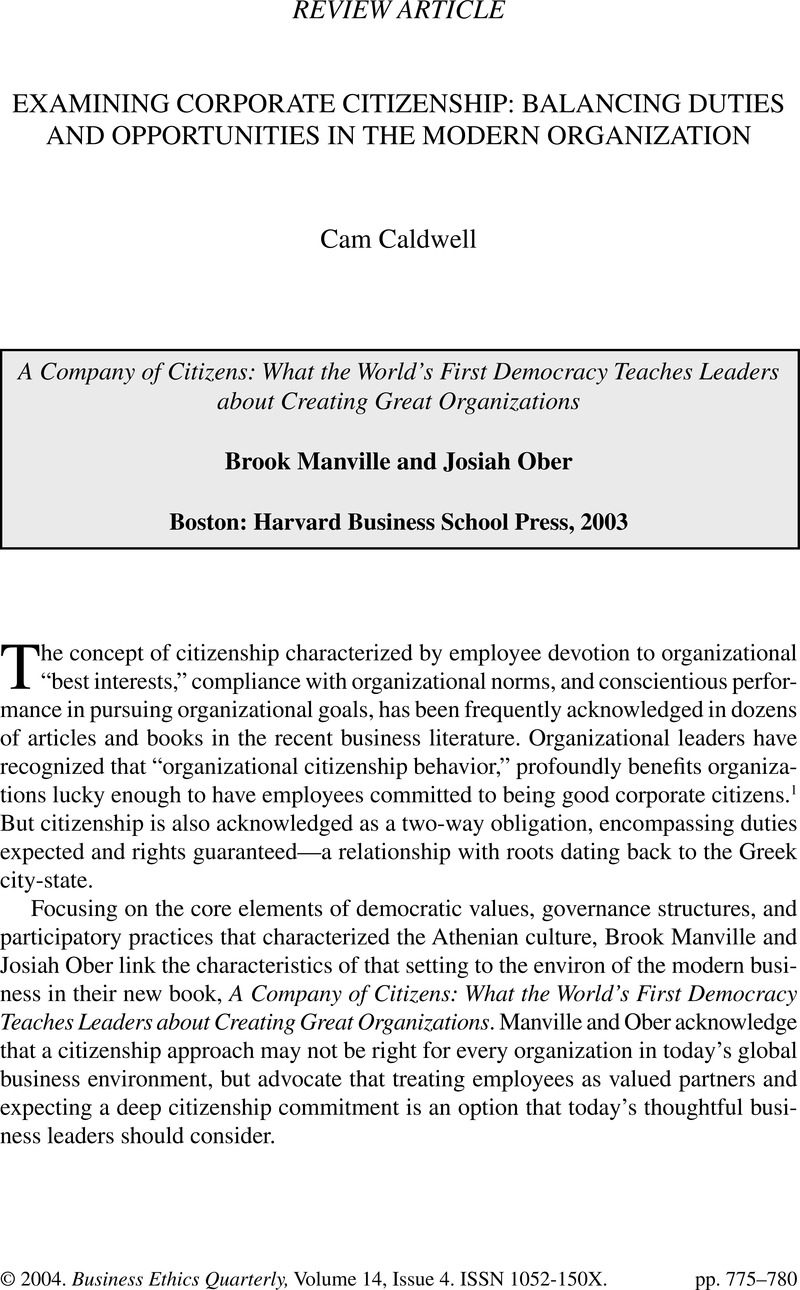Article contents
Examining Corporate Citizenship: Balancing Duties and Opportunities in the Modern Organization
Published online by Cambridge University Press: 23 January 2015
Abstract

- Type
- Review Articles
- Information
- Copyright
- Copyright © Society for Business Ethics 2004
References
Notes
1 D. W. Organ and K. Ryan, “A Meta-Analytic Review of Attitudinal and Dispositional Predictors of Organizational Citizenship Behavior,” Personnel Psychology 48(7) (1995): 775–89.
2 This notion is also well articulated in P. Block, Stewardship: Choosing Service Over Self- Interest (San Francisco: Berrett-Koehler, 1993).
3 B. Manville and J. Ober, A Company of Citizens: What the World’s First Democracy Teaches Leaders about Creating Great Organizations (Boston: Harvard Business School Press, 2003), 19.
4 E. H. Schein, Organizational Culture and Leadership (2nd Edition) (San Francisco: Jossey-Bass, 1992), 17–20.
5 R. J. Bies and J. Moag, “Interactional Justice: Communication Criteria of Fairness,” in Research on Negotiations in Organizations, vol. 1, ed. R. J. Lewicki, B. H. Sheppard, and M. H. Bazerman (Greenwich, Conn.: JAI, 1986), 43–55.
6 Note, for example, Jesse Drucker’s Wall Street Journal article of April 29, 2003, noting that the corporate bonus for underperforming executives and managers is now being “managed” by lowering the performance bar. J. Drucker, “Performance Bonus Out of Reach? Move the Target,” Wall Street Journal 241(81) (April 29, 2003), B1.
7 J. M. Kouzes and B. Z. Posner, The Leadership Challenge: How to Get Extraordinary Things Done in Organizations (San Francisco: Jossey-Bass, 1987).
8 Block, Stewardship, 91–107.
9 Schein, Organizational Culture and Leadership, 5.
10 Ibid., 209–27.
11 Manville and Ober, A Company of Citizens, 175.
12 B. J. Tepper, “Relations Among Supervisors’ and Subordinates’ Procedural Justice Perceptions and Organizational Citizenship Behaviors,” Academy of Management Journal 46(1) (2003), 97–105.
13 Block, Stewardship, 203–20.
- 3
- Cited by


